Development Education

How does the lack of women's education impact economic development ?
This essay discusses the impact of lack of women's education on economic development. It emphasizes that educated women are more likely to participate in the workforce, earn higher wages, and invest in their families and communities. Educated women are also more likely to start businesses and contribute to innovation and entrepreneurship. The lack of women's education leads to lower labor force participation, uneducated women earn lower wages and have limited career growth opportunities, limited access to credit and financial services makes it difficult for women to start businesses or invest in their communities, and reduced innovation and entrepreneurship hinders economic development. Therefore, investing in women's education is essential for promoting economic growth and development.

What are the benefits of sports education for children's development ?
Sports education offers a wide range of benefits for children's development, including improved physical fitness, motor skills, cognitive abilities, stress reduction, social skills, self-esteem, emotional regulation, and resilience. These skills are essential for building strong relationships and succeeding in both personal and professional life. By encouraging children to participate in sports activities, parents and educators can help them lead healthier lives and develop life skills that will serve them well into adulthood.
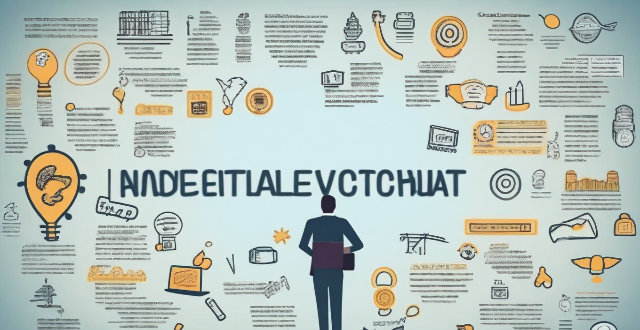
What role do technology and digital learning play in these new education policies ?
The text discusses the integration of technology and digital learning in new education policies, highlighting their benefits such as personalized learning, accessibility, interactivity, collaboration, and real-time feedback. It also outlines key areas of integration, including curriculum development, teacher training, student assessment, administrative functions, and infrastructure development. However, challenges such as equity, privacy and security, teacher readiness, and quality control need to be addressed to fully realize the potential of technology in education.

What is the significance of education in achieving the Sustainable Development Goals ?
Education is essential for achieving the Sustainable Development Goals (SDGs), as it promotes equality, economic growth, health and well-being, peace and justice, and environmental sustainability. By providing access to quality education for all, we can empower individuals, break down barriers to social and economic mobility, foster a better understanding of environmental issues, and encourage responsible consumption and production patterns. Education is also crucial for promoting gender equality and empowering women and girls, developing the skills needed to adapt to changing economic conditions and job markets, improving health literacy and promoting healthy behaviors, promoting human rights, democracy, and the rule of law, and building bridges between different cultures.

Why is it important for parents to support their children's participation in sports education ?
Participating in sports education is essential for a child's development as it teaches valuable life skills such as teamwork, perseverance, and discipline. Parental support in children's sports education is crucial as it encourages physical health, fosters emotional well-being, promotes social development, instills lifelong habits, and supports academic performance. By encouraging participation in sports, parents play a significant role in their children's overall development.
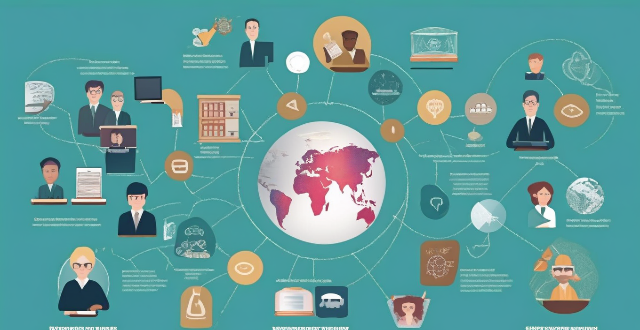
How do these education policy updates align with global education standards ?
Education policy updates align with global education standards in various ways, including curriculum reform, diverse assessment methods, teacher professional development, technology integration, and prioritizing student well-being and inclusivity. These efforts aim to equip students with the necessary skills and knowledge to thrive in a globalized world.
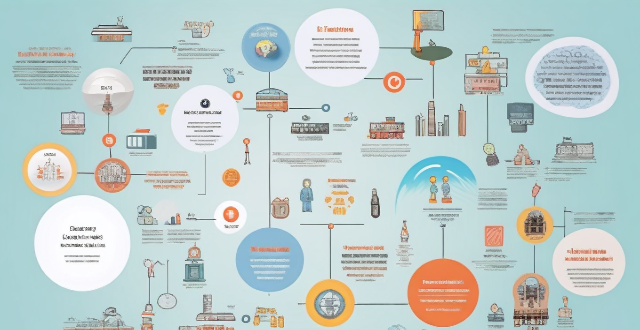
What are the latest updates in education policy ?
The latest updates in education policy focus on improving the quality of education, increasing accessibility, and preparing students for future challenges. Key areas of reform include remote learning and online education, inclusive education, curriculum reform, teacher professional development, and funding and resource allocation. These changes aim to create a more effective and equitable educational system for all students.

What strategies have been successful in promoting female education in developing countries ?
Promoting female education in developing countries is crucial to socio-economic development. Successful strategies include community engagement, government policies, education system reforms, partnerships, and technology integration. These efforts aim to ensure every girl has the opportunity for quality education.

What role does diversity play in multicultural education ?
The text discusses the role of diversity in multicultural education, highlighting its benefits such as enhancing cultural awareness, promoting tolerance and acceptance, encouraging open-mindedness and critical thinking, and providing opportunities for personal growth and development. The author emphasizes that embracing diversity in education can contribute to creating a more inclusive and harmonious society.
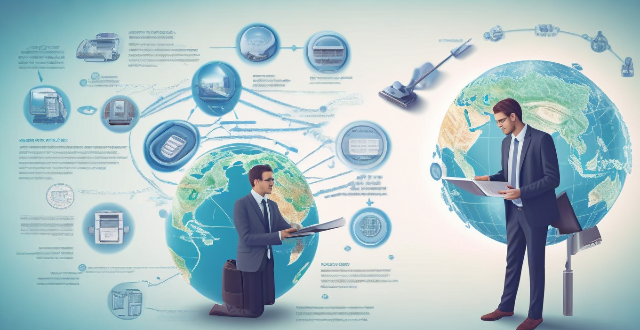
How can we improve climate change education in higher education institutions ?
Climate change is a pressing global issue that requires immediate attention and action. Higher education institutions play a crucial role in shaping the future leaders and decision-makers who will tackle this challenge. Therefore, it is essential to improve climate change education in these institutions to ensure that students are well-equipped with the knowledge, skills, and attitudes necessary to address this complex issue. Key strategies for improving climate change education include integrating climate change into curriculum, promoting research and innovation, engaging students in real-world projects, fostering sustainability on campus, enhancing faculty training and development, and encouraging student leadership and advocacy. By implementing these strategies, higher education institutions can play a vital role in addressing climate change and creating a more sustainable future.

What are the implications of these education policy updates for higher education ?
Education policy updates have significant implications for higher education institutions, students, and educators. These policies can impact the quality of education, access to education, and the overall structure of higher education. One of the main implications is the potential for curriculum changes, which could lead to changes in course offerings, teaching methods, and assessment practices. Another implication is the need for faculty development, as educators may need to update their skills and knowledge to effectively implement new requirements. Changes to financial aid policies and admissions policies can also impact access to higher education. For example, if a policy requires universities to admit a certain percentage of underrepresented groups, institutions may need to revise their admissions processes to ensure compliance. Finally, education policy updates can influence the structure of higher education by modifying accreditation standards and promoting inter-institutional collaboration. It is essential for higher education stakeholders to stay informed about these policy updates and adapt accordingly to ensure that they continue to provide high-quality educational experiences for all students.

How can governments support the development and implementation of sustainable energy solutions ?
Governments can support sustainable energy solutions through clear policies, financial incentives, R&D, education, infrastructure development, international cooperation, market-based mechanisms, and demonstration projects.
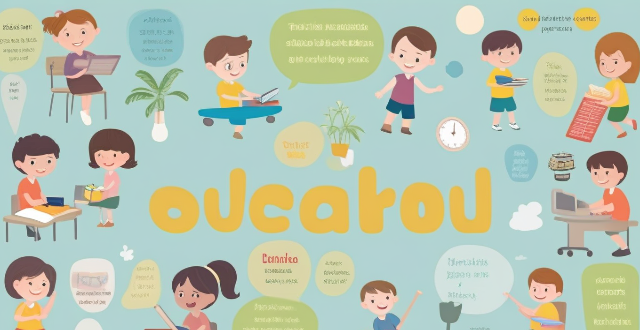
How does preschool education prepare children for kindergarten and beyond ?
Preschool education is crucial in preparing children for kindergarten and beyond. It helps them develop essential skills such as socialization, language development, cognitive development, emotional development, fine motor skills, and gross motor skills. These skills are crucial for success in kindergarten and beyond, where children will be expected to work and play with others, read, write, and communicate effectively, navigate complex social situations, form healthy relationships, and participate in physical activities. By attending preschool, children gain a strong foundation for future learning and success in all areas of life.

What are the benefits of using data analytics in education ?
Data analytics has become an increasingly popular tool in education, offering benefits such as improved student performance through personalized learning and early intervention, enhanced teaching practices with curriculum development and professional development, and better decision making with evidence-based decision making and transparency. As technology advances, data analytics is likely to become an even more integral part of the educational landscape.

What role do parents play in the development of their adolescent children ?
Parents play a crucial role in the development of their adolescent children by providing emotional support, guidance and discipline, educational support, promoting healthy lifestyle habits, aiding in social development, and shaping moral and ethical values.

What are the benefits of preschool education ?
Preschool education is crucial for children's future academic success and overall development, offering benefits in social development, cognitive growth, early literacy and math skills, fine and gross motor skills, self-help abilities, school readiness, and parental involvement. It helps children develop interpersonal skills, emotional intelligence, language skills, problem-solving abilities, reading readiness, math concepts, hand-eye coordination, physical fitness, independence, life skills, routine adaptation, classroom etiquette, family partnerships, and parent education. Preschool prepares children for elementary school by nurturing their social, emotional, cognitive, physical, and self-help skills in a stimulating and supportive environment.

How can education help combat climate change ?
Education is a powerful tool in the fight against climate change by fostering awareness, promoting sustainable practices, stimulating innovation, and shaping policy. It empowers individuals to make informed decisions and advocate for environmental protection through comprehensive science education, applied learning experiences, interdisciplinary research, and civic engagement. By integrating sustainability into curricula and encouraging global perspectives, education prepares future generations to tackle the complex challenges of climate change effectively.

How do you identify a child who may have special education needs ?
Identifying a child with special education needs is crucial for providing them with the right support and interventions. Signs include delayed developmental milestones, difficulty in school, unusual behaviors or habits, and health concerns. If you suspect a child may have special education needs, consult with professionals to determine the appropriate course of action.
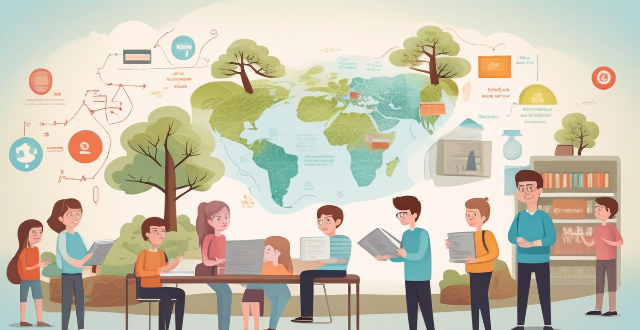
How do you measure progress in students with special education needs ?
Measuring progress in students with special education needs (SEN) is crucial for understanding the effectiveness of interventions and ensuring appropriate education. Identify goals through Individualized Education Plans and focus on functional skills. Use formative assessments, standardized testing, and alternative assessments to monitor progress. Implement progress monitoring tools and analyze data to inform instructional decisions. Ensure accommodations and modifications are effective and regularly updated. Maintain open communication with parents and collaborate with a team to support the student's development.
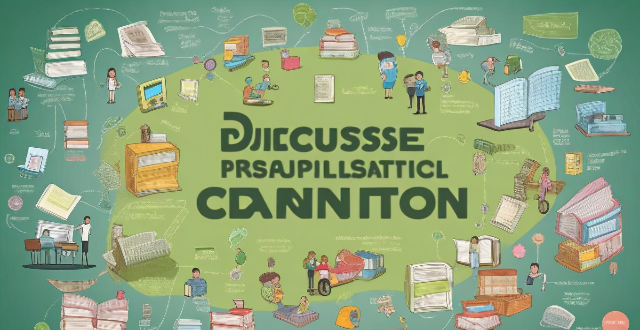
Can remote education platforms replace traditional classroom learning ?
The text discusses the pros and cons of remote education platforms and concludes that they cannot fully replace traditional classroom learning due to lack of social interaction, difficulty with self-motivation, and limited hands-on experience. However, a combination of both methods may provide a well-rounded education.

How does education contribute to raising environmental awareness among future generations ?
Education is crucial for raising environmental awareness among future generations, as it enhances knowledge, develops values, and promotes action. Incorporating environmental education into the curriculum empowers students with the necessary tools to understand and address complex challenges facing our planet. By fostering a deeper appreciation for nature and cultivating a sense of responsibility towards preserving it, schools can play a significant role in nurturing eco-conscious citizens who are well-equipped to confront and overcome environmental challenges.

How do women's health and education projects address global disparities ?
Women's health and education are crucial for global development, affecting communities' well-being. Women's health projects ensure access to quality healthcare services, including prenatal care and family planning. Education initiatives promote gender equality by increasing girls' enrollment rates and eliminating classroom biases. Economic empowerment projects provide job training and microfinance loans to women entrepreneurs. These efforts create a more equitable world where everyone can thrive.

How do climate change and sustainable development goals (SDGs) intersect ?
The intersection of climate change and sustainable development goals (SDGs) is crucial for creating a sustainable future. Climate change affects all aspects of sustainable development, from health and well-being to clean water and sanitation to affordable and clean energy. To effectively address climate change within the context of sustainable development, it is important to integrate climate actions into each SDG through strategies such as integrated planning, finance and investment priorities, and education and awareness campaigns. By doing so, we can work towards a more sustainable future for our planet.

How does multicultural education benefit students ?
The article discusses the benefits of multicultural education for students, including understanding and appreciation of diversity, enhanced communication skills, improved critical thinking, increased empathy and tolerance, career readiness, and personal growth. It emphasizes the importance of multicultural education in preparing students for a globalized world and promoting open-mindedness, flexibility, and adaptability.

What role do governments play in promoting sustainable development ?
The article discusses the various ways governments can contribute to sustainable development, including leadership and policy-making, education and awareness, infrastructure and investment, regulation and enforcement, and collaboration and partnership. Governments are responsible for setting national policies and priorities that guide the actions of their citizens and businesses, promoting sustainable development through education and public awareness campaigns, investing in infrastructure projects that support environmental protection, energy efficiency, and renewable energy sources, enforcing existing laws and regulations related to environmental protection, resource management, and social equity, and working together with other levels of government, the private sector, civil society, and international organizations to achieve common sustainability goals.

What policies have countries implemented to ensure equal access to education for both sexes ?
Policies for Equal Education Access: Key Policies and Challenges

What is multicultural education and why is it important ?
This article defines multicultural education as an approach to teaching and learning that embraces the diversity of students' cultural backgrounds, experiences, and perspectives. It emphasizes the importance of incorporating multiple cultures into the curriculum, promoting equity and inclusivity, and fostering cross-cultural understanding and respect. The article highlights the key elements of multicultural education, including culturally relevant curriculum, equity and access, critical thinking, empathy, and global citizenship. It also explains why multicultural education is important, citing its role in promoting social justice and equality, enhancing cognitive development, preparing students for a global society, fostering empathy and tolerance, supporting personal identity formation, and contributing to academic achievement. The article concludes that multicultural education is essential for creating an inclusive learning environment that celebrates diversity, promotes social justice, and prepares students for success in a global society.
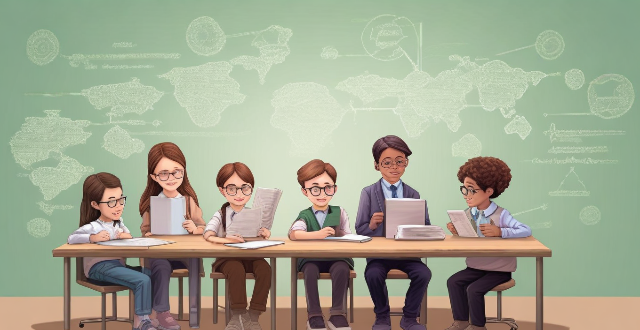
How will these education policy updates impact the future of education in our society ?
Education policy updates may increase access to education, emphasize STEM education, and improve student outcomes.

How can businesses contribute to the achievement of the Sustainable Development Goals ?
Businesses can contribute to the achievement of the Sustainable Development Goals by adopting sustainable practices, promoting equitable workplaces, supporting local communities, innovating for sustainability, ensuring transparency and accountability, maintaining ethical business practices, and fostering education and awareness. These actions not only help achieve global development targets but also enhance a company's long-term success and resilience.

What role does waste reduction play in sustainable development ?
The article discusses the importance of waste reduction in sustainable development. It highlights the environmental, economic, and social benefits of waste reduction, including conservation of natural resources, protection of ecosystems, climate change mitigation, cost savings, job creation, innovation and efficiency, public health, education and awareness, and community engagement. The article emphasizes that waste reduction is an essential component of sustainable development and encourages individuals, businesses, and governments to take action to reduce waste.